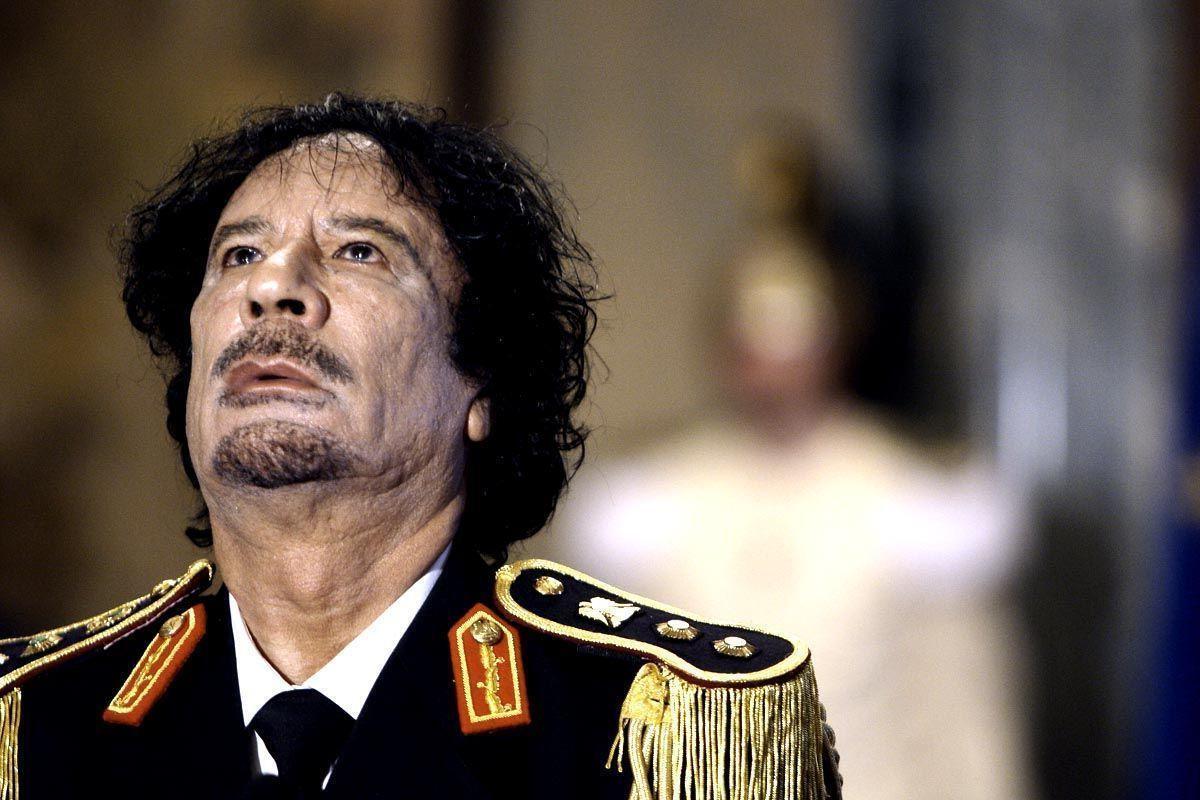
Who were the Gaddafi family, and why are they significant? The Gaddafi family, led by Muammar Gaddafi, ruled Libya for over four decades. Known for their opulent lifestyle and controversial politics, they left a lasting impact on Libya and the world. Muammar Gaddafi, often called the "Brother Leader," seized power in 1969 through a military coup. His rule was marked by both modernization efforts and brutal repression. The family became infamous for their eccentric behavior, lavish spending, and human rights abuses. Their downfall began with the Arab Spring in 2011, leading to a civil war and Gaddafi's eventual death. Understanding the Gaddafi family's history provides insight into Libya's complex past and ongoing struggles.
Key Takeaways:
- The Gaddafi family ruled Libya for over 40 years, leaving a complex legacy of wealth, controversy, and political turmoil. Their story serves as a cautionary tale about the dangers of absolute power.
- Despite their fall from power, the Gaddafi family remains a topic of interest and controversy, with some advocating for a return to Libyan politics. Their story continues to influence Libya and the broader region.
The Gaddafi Family's Rise to Power
The Gaddafi family, led by Muammar Gaddafi, ruled Libya for over four decades. Their influence and actions have left a significant mark on the country's history.
- Muammar Gaddafi seized power in Libya in 1969 through a military coup, overthrowing King Idris I.
- Gaddafi declared Libya a socialist state, renaming it the Great Socialist People's Libyan Arab Jamahiriya.
- He ruled Libya with an iron fist, using a combination of charisma, propaganda, and brutal repression.
- Gaddafi's political philosophy, outlined in his "Green Book," combined elements of socialism, Islam, and his own unique ideas.
- Under Gaddafi, Libya became one of the wealthiest countries in Africa due to its vast oil reserves.
The Gaddafi Family Members
The Gaddafi family is large, with many members playing significant roles in Libya's political and social landscape.
- Muammar Gaddafi had eight biological children and two adopted children.
- His second wife, Safia Farkash, was a former nurse and mother to seven of his children.
- Gaddafi's eldest son, Muhammad, was the head of the Libyan Olympic Committee and the General Post and Telecommunications Company.
- Saif al-Islam, Gaddafi's second son, was considered his father's heir apparent and played a key role in Libya's international relations.
- Al-Saadi Gaddafi, another son, was a professional footballer and headed the Libyan Football Federation.
Controversial Actions and Policies
The Gaddafi regime was known for its controversial policies and actions, both domestically and internationally.
- Gaddafi supported various militant groups worldwide, earning him the nickname "Mad Dog of the Middle East."
- He was implicated in the 1988 Lockerbie bombing, which killed 270 people.
- Gaddafi's regime was accused of numerous human rights abuses, including torture and extrajudicial killings.
- In 2003, Libya admitted responsibility for the Lockerbie bombing and agreed to pay compensation to the victims' families.
- Gaddafi's government implemented a policy of "state feminism," promoting women's rights and education.
The Fall of the Gaddafi Regime
The Gaddafi regime's downfall was swift and violent, leading to significant changes in Libya.
- The Arab Spring protests in 2011 sparked a civil war in Libya, with rebels seeking to overthrow Gaddafi.
- NATO intervened in the conflict, launching airstrikes against Gaddafi's forces.
- Gaddafi was captured and killed by rebel forces in October 2011.
- His death marked the end of his 42-year rule and led to a power vacuum in Libya.
- The Gaddafi family's assets were frozen by international authorities following the regime's collapse.
The Gaddafi Family in Exile
After the fall of the regime, many Gaddafi family members fled Libya, seeking refuge in various countries.
- Safia Farkash and several of Gaddafi's children fled to Algeria in 2011.
- Saif al-Islam was captured by rebel forces but later released in 2017.
- Al-Saadi Gaddafi was extradited to Libya from Niger in 2014 and faced trial for crimes committed during his father's rule.
- Some Gaddafi family members sought asylum in Oman, where they lived under strict conditions.
- The family's wealth and assets remain a subject of international legal battles.
Legacy and Impact
The Gaddafi family's legacy continues to influence Libya and the broader region.
- Gaddafi's rule left Libya with a complex and fractured political landscape.
- The country's oil wealth has been both a blessing and a curse, fueling conflict and corruption.
- Gaddafi's policies on women's rights and education had lasting impacts, with many Libyan women continuing to pursue higher education and professional careers.
- The Gaddafi family's involvement in international terrorism has left a lasting stain on Libya's reputation.
- Efforts to recover and repatriate the family's wealth continue, with mixed success.
The Gaddafi Family Today
Despite their fall from power, the Gaddafi family remains a topic of interest and controversy.
- Saif al-Islam announced his intention to run for president in Libya's 2021 elections, though the elections were postponed.
- Some Libyans view the Gaddafi family with nostalgia, believing the country was more stable under their rule.
- The family's remaining members continue to live in exile, with some advocating for a return to Libyan politics.
- Gaddafi's grandchildren are growing up in a world vastly different from the one their grandfather ruled.
- The Gaddafi family's story serves as a cautionary tale about the dangers of absolute power and the complexities of post-revolutionary governance.
Final Thoughts on the Gaddafi Family
The Gaddafi family has left a significant mark on Libya's history. From Muammar Gaddafi's rise to power in 1969 to his controversial rule, the family's influence has been undeniable. Muammar's children, each with their own unique paths, have contributed to the family's complex legacy. Some were involved in politics, while others pursued different careers. The family's wealth, power, and controversies have made them a subject of global interest. Understanding the Gaddafi family's history provides insight into Libya's past and its ongoing struggles. Their story is a reminder of how power can shape a nation's destiny. As Libya continues to rebuild, the Gaddafi family's legacy remains a topic of discussion and analysis. Their impact on Libya's political and social landscape will be remembered for years to come.
Frequently Asked Questions
Was this page helpful?
Our commitment to delivering trustworthy and engaging content is at the heart of what we do. Each fact on our site is contributed by real users like you, bringing a wealth of diverse insights and information. To ensure the highest standards of accuracy and reliability, our dedicated editors meticulously review each submission. This process guarantees that the facts we share are not only fascinating but also credible. Trust in our commitment to quality and authenticity as you explore and learn with us.


